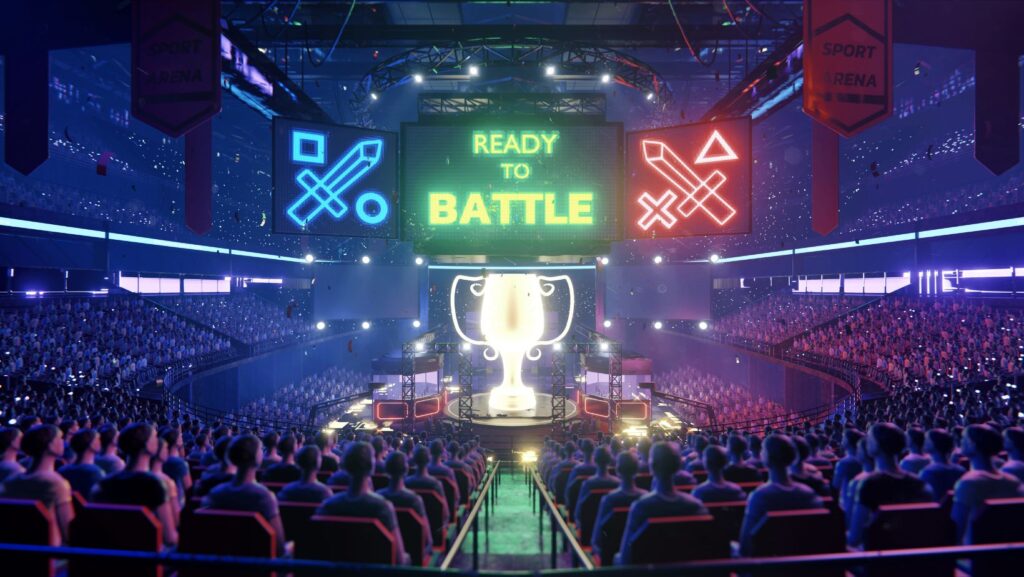The world of eSports has exploded in recent years, transforming from a niche hobby into a multi-billion-dollar industry. As competitive gaming gains mainstream recognition, the demand for specialized eSports jobs has skyrocketed. From professional players to behind-the-scenes roles, opportunities abound for those passionate about gaming. Whether it’s shout casting, coaching, or managing social media, eSports offers a diverse range of careers that cater to various skill sets. These roles not only provide a chance to work in an exciting, fast-paced environment but also offer the potential for significant financial rewards. For anyone looking to turn their gaming passion into a profession, the eSports industry presents a wealth of possibilities.
E Sports Jobs
Career Opportunities in E Sports
 The eSports industry offers diverse career opportunities. Professional players, shoutcasters, coaches, social media managers, and event coordinators are in high demand. Professional players compete in tournaments, earning substantial income from prizes and sponsorships. Shoutcasters (eSports commentators) provide live commentary, engaging fans with their insights. Coaches train teams, employing strategies to enhance performance. Social media managers maintain online engagement, promoting teams, events, and content to foster fan communities. Event coordinators plan and execute tournaments, ensuring smooth operations and memorable experiences.
The eSports industry offers diverse career opportunities. Professional players, shoutcasters, coaches, social media managers, and event coordinators are in high demand. Professional players compete in tournaments, earning substantial income from prizes and sponsorships. Shoutcasters (eSports commentators) provide live commentary, engaging fans with their insights. Coaches train teams, employing strategies to enhance performance. Social media managers maintain online engagement, promoting teams, events, and content to foster fan communities. Event coordinators plan and execute tournaments, ensuring smooth operations and memorable experiences.
Growth Trends in E Sports Employment
eSports employment trends indicate rapid growth. According to Newzoo, the global eSports market is projected to reach $1.8 billion in 2022. Job opportunities have expanded with this growth, driven by increased sponsorship, media rights, and advertising revenue. The demand for technical roles like game developers, network engineers, and data analysts is rising. Organizations like EA Sports, Riot Games, and Blizzard Entertainment are pivotal in this expansion. Universities are also integrating eSports programs, fostering new talent and offering scholarships, which further contribute to job market growth.
Types of E Sports Careers
Professional Gaming Roles
Professional gaming roles include various positions directly involved in gameplay and competition. Professional players represent teams or themselves in competitive events, earning income through tournaments, sponsorships, and streaming platforms. Shoutcasters, or commentators, provide live commentary during matches, engaging audiences with their insights and excitement. Coaches work with teams to develop strategies, analyze opponents, and improve player performance, often seen as crucial to a team’s success. Team managers handle administrative tasks, coordinate schedules, and facilitate communication between players and organizational staff.
Technical and Supportive Roles
 Technical and supportive roles ensure the seamless operation of the eSports ecosystem. Game developers design, create, and update games, ensuring they are balanced and enjoyable. Network engineers maintain online infrastructure, ensuring stable and smooth connections during competitions and training sessions. Data analysts examine gameplay data to uncover insights that can improve team strategies and player performance. Event coordinators organize tournaments and events, managing logistics, scheduling, and on-site operations. Social media managers build and maintain a team’s or player’s digital presence, engaging fans and promoting content across various platforms. Video editors create compelling highlight reels, promotional materials, and content for streaming and social media channels.
Technical and supportive roles ensure the seamless operation of the eSports ecosystem. Game developers design, create, and update games, ensuring they are balanced and enjoyable. Network engineers maintain online infrastructure, ensuring stable and smooth connections during competitions and training sessions. Data analysts examine gameplay data to uncover insights that can improve team strategies and player performance. Event coordinators organize tournaments and events, managing logistics, scheduling, and on-site operations. Social media managers build and maintain a team’s or player’s digital presence, engaging fans and promoting content across various platforms. Video editors create compelling highlight reels, promotional materials, and content for streaming and social media channels.
Skills Required for E Sports Career
Gaming Skills
Advanced gaming skills are essential for eSports roles. Professional players need rapid reflexes, strategic thinking, and a deep understanding of game mechanics. They must excel in their specific games and be updated on any changes or new strategies. Even non-players, such as coaches and analysts, benefit from strong gaming backgrounds to provide insight and guidance.
Technical Expertise
 Technical proficiency underpins many eSports jobs. Game developers require knowledge in programming languages like C++ and Java to create and maintain games. Network engineers handle the infrastructure, ensuring stable and fast connections for smooth gameplay. Data analysts use tools like SQL and Python to interpret game and player data, offering insights for improvement. Video editors utilize software such as Adobe Premiere and After Effects to produce engaging content.
Technical proficiency underpins many eSports jobs. Game developers require knowledge in programming languages like C++ and Java to create and maintain games. Network engineers handle the infrastructure, ensuring stable and fast connections for smooth gameplay. Data analysts use tools like SQL and Python to interpret game and player data, offering insights for improvement. Video editors utilize software such as Adobe Premiere and After Effects to produce engaging content.



